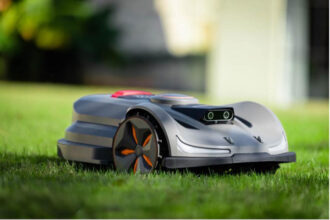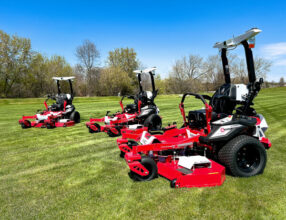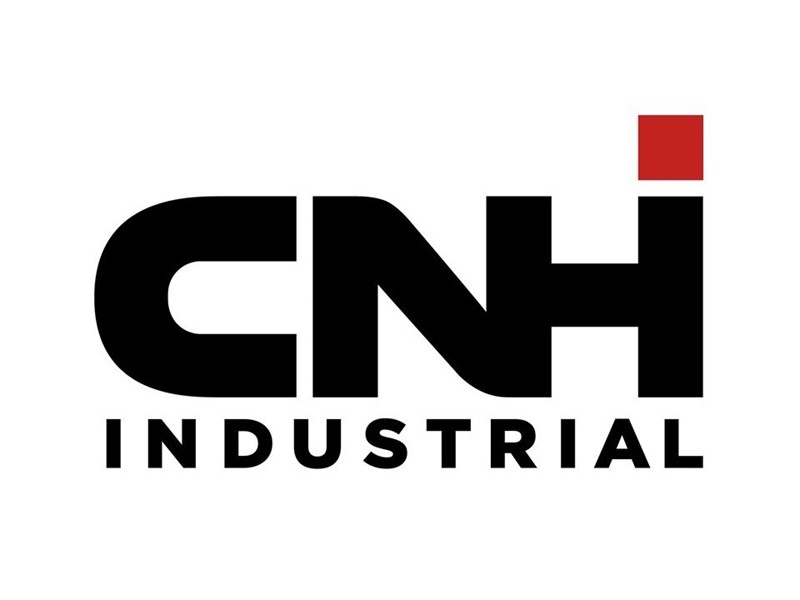Right way to hire the right people
By Bob Clements
With the spring season just around the corner, many of you have positions that need to be filled within the next 30 days to prepare for the onslaught of business in your dealerships. This is a critical time for many of you because hiring the right people is arguably your biggest, most challenging decision.
When consulting dealers about the hiring process, I always remind them that they are going to do one of two things: Either they are going to focus on hiring a person who is going to add to the passion of the dealership, or they are not.
When all employers hire, they often do not put enough emphasis on building a team of really passionate people. Instead, they focus on hiring people with the right qualifications at the right price. It’s an easy trap to fall into because it’s an easier way to hire. Let’s face it: When the season is underway and you’re overloaded with work, you’re just hoping to find a warm body that shows up on time and leaves without stealing. Unfortunately, hiring a warm body often results in high turnover, unhappy employees and low productivity.
The problem with hiring the right people is that it takes a lot longer, but the payoff is enormous. Keep in mind that in your dealership your employees are practically your business partners. You need them to stick it out through the ups and down of the OPE business. They are the ones who create the attitudes for your future hires. They are the ones you need to evangelize your business to all those they meet. They become the driving force for your success.
Brothers Dan and Pat D’Arcy, co-owners of Allpower, Granby, Mass., are currently working with my consulting company to re-align their service and parts departments to improve the volume of business that both can handle for the upcoming season. One of the elements that we are focusing on is their hiring processes. As a part of the process, Pat and Dan are redoing their employees’ job descriptions and compensation programs to help attract the right type of employee for the future. Having been in business since 1972, they have seen it all when it comes to hiring employees and are committed to creating a team that has a passion for their business. They both understand that it’s better to have no person than the wrong person in their company.
Start with a plan
All managers should start with a little planning before they place an ad and begin interviewing.
When you do your own planning, your goal is to understand three things about yourself:
1. What’s your working style? Take a moment and think about your working style and the type of people with whom you work with best.
• Are you a hands-on manager, or do you want people who will work independently?
• Do you want people who will report to you in a formal meeting, or are you more comfortable getting your information from general conversations during the day?
•Will this employee work directly with you or with another manager? If the employee will be working with another manager, does that manager’s style differ from yours?
Remember that if you know that certain types of people or certain personality types have caused you problems, don’t hire similar people regardless of their skill. If they didn’t work out in the past, they aren’t going to work out in the future.
2. What’s your company’s culture? Give serious thought to the culture of your dealership and how you expect your employees to function in your environment.
• Do you expect employees to work evenings, weekends or holidays?
• Do you expect employees to dress casually or to wear uniforms?
• Are employees expected to participate in company social functions?
• Are they encouraged to develop friendships with co-workers, or is social activity reserved for outside of the dealership?
3. What are your expectations of this job position? It’s critical that you clearly define what you expect of this person and include those expectations in a job description. I have a sample parts counter person’s job description, which you can download from my Web site (www.bobclements.com) and use as a template for positions at your dealership.
Interview process
You’ve done your planning, and know what you want and expect. You’ve placed an ad, perhaps posted the job online, or informed others that you are looking, and received phone calls or e-mails from interested people. Now, it’s time to start interviewing potential employees.
Keep in mind that as you begin the interview process, don’t rush to hire the first person who meets your needs. In the current job market, you will have a nice choice of potential candidates, so take your time to find the person who makes the perfect fit.
Interview questions
The interview is your chance to find out everything you can about your future employee. As you ponder possible questions, it’s important to keep in mind that past behavior predicts future performance. The questions should focus on what the candidate has done in the past, not what that person would do in the future. For example, instead of asking a potential parts person, “What do you say to customers who think your parts prices are too high?” you should say, “Tell me about a time when a customer complained about a price being too high, and how did you handle it?”
Studies have shown that in asking this type of behavioral question (using past performance to predict future performance), you can increase your chances of hiring the right person by more than 60 percent.
While interviewing, your goal is to find out how people actually behave rather than their promise of how they will behave. We have all hired people who gave good answers and sounded impressive, and later found out it doesn’t mean they can do what they say. Joe Rodriguez, service manager for Allpower, said that all of the service techs he has interviewed believe they are the best and can turn out eight billable hours each day.
Joe’s challenge is that Allpower sells and services OPE, power sports and boats. So with three service areas to oversee, he has to find people who don’t need a lot of babysitting. By using behavioral questions, Joe can get a good picture of how potential hires will fit into his shops.
A traditional interview at a traditional dealership might go as follows:
• What type of experience do you have?
• Why are you looking to work for a new dealership?
• Why would you want to work for us?
• What do you know about our company?
• What do you like to do in your spare time?
These questions aren’t bad and will definitely help you to find out more about a person, but they limit the information you will glean from that person to predict future performance.
Keep in mind that if this is a person who has been interviewing at other dealerships, the person is going to have a good idea of the questions that you may ask and should be able to give you great answers. So, even if the person answers them well, what does it really mean? Is the person really good or just really good at answering the same old questions every dealer asks?
After asking these traditional questions, you still have very little real information about how the candidate would behave in the real-life pressure cooker of a shop during season.
Using behavioral questions, you get a much more accurate picture of a person’s true character and abilities. Remember again, behavioral questioning is effective because it examines the past behavior, which gives us the best indicator of a potential employee’s future behavior.
For example, if Joe at Allpower interviewed the same candidate (Bill) and wanted to find out about how he handles pressure, in the past Joe might have asked Bill, “Do you feel that you work well under the pressure of a busy shop?” Wanting the job, Bill would respond, “Sure, that’s just a part of the business we are in.”
However, converting the same traditional question into a behavioral-based question, Joe would say, “Bill, tell me about a time when you got irritated or frustrated while working on equipment. How did you let it get to that point?”
Do you see the difference?
Behavioral questions give Joe a picture of how Bill behaved in the past in a very specific pressure-related situation in the shop.
By asking the behavioral-based question, it allows Bill to give Joe an answer that has some depth to it, and it gives Joe a more accurate reading of who Bill is and how he will really react at Allpower under the pressure of the season.
At Allpower, we are working with the managers to define the behavioral competencies they are looking for in the right employee to fill their position. By doing this, they can be more focused with recruiting.
Once you know the behavioral competencies you want, you can then structure your interview questions to learn more about the potential candidate and watch your success rate in picking the right person improve.
Hiring the right person for your dealership is a process that is well worth the time and effort you invest. I encourage you to get actively involved in the process and take the time to do it right. After 15 years of working with dealers, I would say that well over half of the problems of the average dealer are employee related. As owners, we hurry to hire the first person who walks in the door and can fog a mirror. You have to stop the insanity and take the time to do it right.
Keep in mind that the average employee will stay with you for about five years. If you invest an average of $30,000 per year in the employee’s salary — plus another $10,000 annually in taxes, unemployment, worker’s compensation and other miscellaneous fees, you will have invested more than $200,000 in that employee while that person works for you.
As an owner, if you were going to invest $200,000 in a piece of equipment that you were going to use in your business, you would spend some time evaluating it, talk to people who used it, and do some heavy research. If you would invest that much time and effort learning about a piece of equipment, don’t you think that you should do the same due diligence on a potential employee?
Bob Clements is the president of Bob Clements International, Inc., a consulting firm that specializes in the development of high-performance dealerships. His organization works hands on with dealerships throughout North America, helping them attain the personal freedom and financial wealth all owners strive to achieve. For more information, contact Bob Clements at (800) 480-0737 or bob@bobclements.com or visit his Web site at www.bobclements.com.



